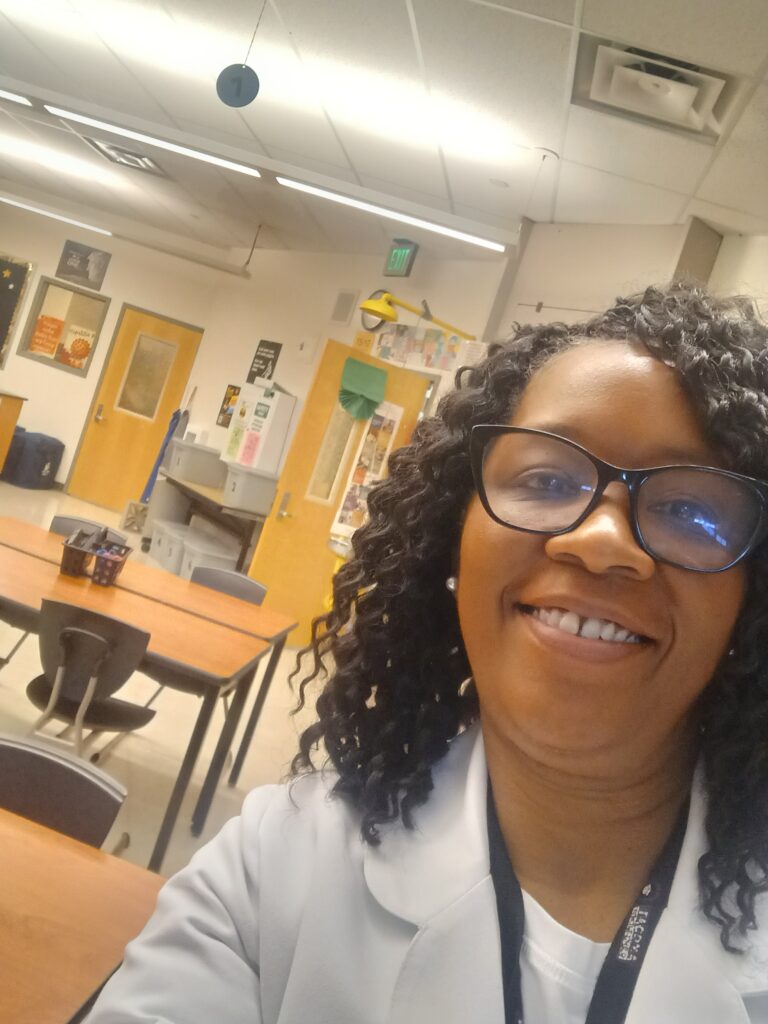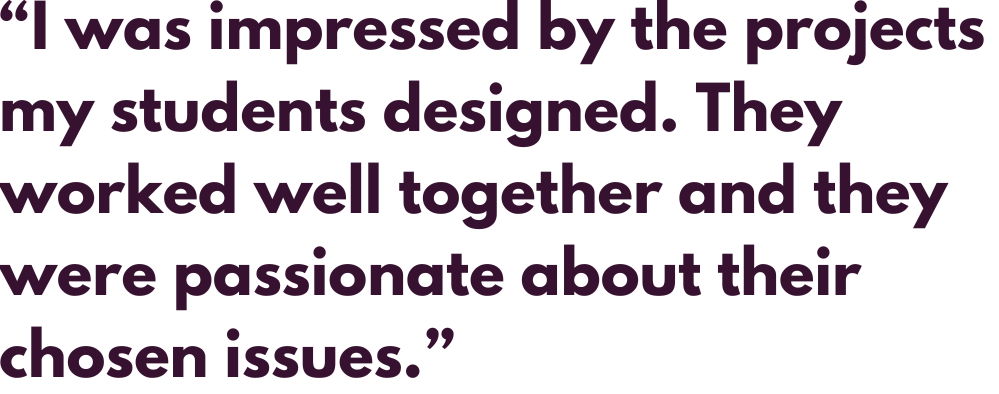Teacher Case Study
Modeling Meta: Managing Diverse Student Teams
Antoinette Reeves
High School Health Sciences teacher at Lincoln High School, Tacoma Public Schools, Washington
 Antoinette Reeves’ favorite moments during her summer with Meta in 2022 were spent behind a black curtain, working on material so confidential that not all employees had authorization to see it. “I was loving the time, you know, I was just kind of moving and grooving in there.”
Antoinette Reeves’ favorite moments during her summer with Meta in 2022 were spent behind a black curtain, working on material so confidential that not all employees had authorization to see it. “I was loving the time, you know, I was just kind of moving and grooving in there.”
A teacher at Lincoln High School in Tacoma, WA, Antoinette was drawn to Ignited’s fellowship program to complete her CTE credential. As Antoinette interacted with her mentor and other reliability engineers working on the same team, she was surprised to learn they all had very different backgrounds in various engineering and STEM fields. “I understand why Meta does that because each person is bringing their strength to that particular project,” she said–and it showed in the project’s results.
The experience made her reflect on the pedagogy of cooperative “group” learning in the classroom. While the idea of optimizing student groups according to their strengths and abilities is well-known, it takes a lot of extra effort. Many teachers randomize the groups in the name of fairness, but this can often result in unequal groups, putting some at a disadvantage due to unbalanced strengths.
Seeing how well Meta’s teams functioned gave Antoinette a push to put in that extra effort. “I don’t need to have all my English language learner students grouped together. It’d be good to have them in different groups so they can bring their strengths to the group, but then other students can help them with where they might be weak.”
As part of the fellowship program, Antoinette worked with an Ignited curriculum coach to develop a month-long project that brings the values of collaboration and diversity from the workplace into her classroom. Students worked in groups of four to brainstorm and design solutions to community problems. Since they were working with peers they don’t normally interact with, Antoinette hypothesized the new perspectives would push the student projects in unique and innovative directions.
The range of challenges her students opted to address varied from sources of heat for unhoused people to calming devices for students with anxiety, and their proposed solutions were equally as creative. She judged her own success at creating optimal groups based on the diversity of finalized products–like Meta and other companies do.
to calming devices for students with anxiety, and their proposed solutions were equally as creative. She judged her own success at creating optimal groups based on the diversity of finalized products–like Meta and other companies do.
“I was impressed by the projects my students designed. They worked well together and they were passionate about their chosen issues.” She shared the benefits of this pedagogical approach at a school meeting with 75 teachers and was met with enthusiasm and interest from her colleagues, spreading Meta’s influence further.
Beyond the fellowship’s implications for her classroom, Antoinette comments, “as a person it was a good experience. I was out of my comfort zone, and to me that’s always a good thing and I grew a lot. And, I was really proud of telling other teachers, my friends and family ‘Oh I’m working for Meta’ this summer!’”
Teacher
Stories
Industry experiences inspire curriculum
Student
Spark Stories
Ignited teachers impact students’ careers
Other
Stories
Of mentors, teachers, and their students